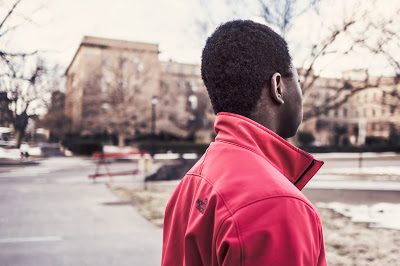Last Updated on July 28, 2022 by Michelle Ball
By Michelle Ball, Sacramento California Expulsion, Special Education, sports/CIF, College, Education and School Attorney/Lawyer for Students since 1995
Colleges can be tricky places to navigate. They are especially tricky when a university student encounters a professor who acts in inappropriate ways toward the student, such as by targeting them for termination or retaliating against the student for perceived offenses against the professor.
College students often won’t take action as they believe they may face retaliation from the professor or a failing grade if they complain, and unfortunately, they might. But, if students don’t do something, the college professor may continue with their harassing or wrongful conduct and even push the college student out of their major program forever. It is a tough spot.

Examples of “Offenses” to College Professors
As an education lawyer, I hear a lot of wild but true stories from college students. Some examples I have seen, which can occur to students in the classroom (didactic) or internship (clinical placement), seem almost ridiculous or fictional, but they are not:
〰A nursing student raises their hand and points out a difference between what the professor is saying and the textbook explanation. The professor thereafter targets the university student and starts lowering the student’s grades on papers and other assignments, which means the college student is then in danger of failing.
〰A college student contradicts a professor’s assertion and the professor thereafter investigates the student, interviewing multiple other students to justify getting the student kicked out of their major and school.
〰A university professor does not like a disabled college student’s political statements in class and later falsely accuses the student of recording and posting the college professor’s lecture on line, thus subjecting the professor to alleged ridicule. The college student never recorded anything but is then referred for discipline and even police investigation. The student is harassed online after the allegation is released.
〰A university professor does not like an older student who will not just take everything the professor says as gospel, and the college student is thereafter monitored and written up on every possible occasion.
〰A professor fails to implement a disabled college student’s accommodations, which leads to a bad grade and termination from their major program.

I usually find out about such college student abuse when the student fails their course, finds out they are placed on remediation, are kicked out, or can just smell that something bad is about to happen.
Actions College Students Can Take
Here are some out-of-court actions which could potentially help or protect the college student in an unfair situation where they are being targeted by their professor, terminated from the university or are suffering negative impacts:
1) Start a good and detailed timeline with actual dates, details and any proof of what the harassing professor has done.
2) File a student grade appeal (if relevant) with the college.
3) File a grievance/complaint against the professor with the college or university for wrongful conduct, retaliation or harassment, if there is enough proof.
4) File a claim with the United States Department of Education Office for Civil Rights (OCR) for discrimination/retaliation OR
4a) A claim could also be filed with the University for discrimination/retaliation, but students generally only get one shot to allege discrimination via administrative processes (depending)- and have to decide who they think would address the matter more fairly- their college, or the Office for Civil Rights.
5) Elicit help from the college’s student disability office (if relevant).
6) Bring witnesses if possible when speaking with the professor or university staff, so the college and professor cannot allege inappropriate conduct by the student.
7) Document everything.
8) Appeal any college discipline or other negative outcome and bring up the improper conduct by the university professor.
9) Encourage other college students to file complaints on the professor, as if no one files them, the college is not on notice of issues and may not be under an obligation to take action against the abusive professor.
10) Try not to do anything to exacerbate the situation with the professor!

College and University Professors Who Target Students Believe They Are The Only Person That Matters
Some college professors are used to being the most important person in the room and I think this can go to their heads. They may not be used to being challenged or even questioned, and can react negatively toward college students who challenge them.
These arrogant professors also tend to be hard to challenge, as grading in many areas is so subjective. Professors can often defend their sly lowering of student grades by saying the grade was based on their highly qualified opinion. As such, students need to start protecting themselves when they even slightly smell a rat as that rat can bite and negatively impact their future graduation and career.
Not All College Professors Are Bad
As a student attorney since the 1990s, I have become jaded. I have heard so many negative stories about college professors and their ridiculous and unfair harassing and retaliatory treatment toward students. However, keep in mind, I am jaded from hearing bad stories about terrible professors for over 2 decades!
I know that likely MOST professors are good people with good hearts, so I would not want anyone reading this to think that ALL professors act like this toward college students. Likely, only a select few act in ridiculously unreasonable ways, which could otherwise be described as acting on a “power trip.”
Michelle Ball is a college student attorney helping with college expulsions, suspensions, termination, disability and other university issues. As a California lawyer, she helps students across California and in many settings, including the University of California, California State University system, private colleges, community colleges, and trade colleges.




